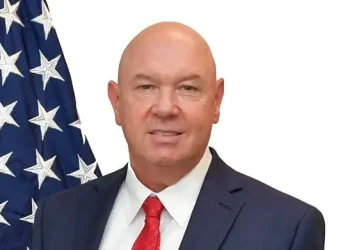A sad day for Venezuela as Edmundo González Urrutia, a prominent opposition leader, has been compelled to leave his homeland.
González Urrutia’s departure underscores the Maduro regime’s relentless crackdown on democratic freedoms, as opposition figures face increasing repression. His move to Spain symbolizes the ongoing struggle for Venezuela’s democratic future.
A Departure Driven by Repression
González Urrutia’s decision to seek refuge in Spain did not occur in isolation; it is a direct result of the oppressive tactics employed by Nicolás Maduro’s government. Since the July 28 presidential election, the Venezuelan government has intensified its efforts to suppress dissent.
The election, which saw widespread support for democratic change, was met with a brutal response from the regime. Maduro’s authorities disqualified opposition candidates, including González Urrutia, and engaged in widespread intimidation and censorship.
- Systematic Persecution: Over 2,000 Venezuelans have been unjustly detained in the past six weeks.
- Erosion of Democracy: Democratic institutions have been eroded, making it nearly impossible for opposition figures to operate freely.
These actions forced González Urrutia to leave the country, as staying would have likely resulted in his arrest or worse. His decision is emblematic of the broader plight faced by opposition leaders and citizens alike under Maduro’s authoritarian rule.
The Broader Implications
González Urrutia’s departure has reverberated across Venezuela, eliciting varied responses. Among opposition supporters, there is a mix of disappointment and understanding. Some view his departure as a setback, fearing it signals a shrinking space for democratic opposition within the country.
Others, however, sympathize with his decision, acknowledging the immense personal risk he faced by staying in Venezuela.
Maduro’s supporters, on the other hand, are likely to exploit this event as a propaganda tool, claiming it as a victory and furthering their narrative of opposition leaders being unpatriotic or involved in illegal activities.
For the general Venezuelan public, this event may deepen the sense of political fatigue and disillusionment, further entrenching the belief that meaningful change is out of reach.
International Response and Future Outlook
The international community, particularly the United States, has condemned Maduro’s actions, calling for an end to repression and the release of those unjustly detained.
Diplomatic tensions are likely to escalate as countries like Spain provide asylum to opposition figures, further isolating the Maduro regime on the global stage.
Events |
Impact |
|---|---|
| Disqualification of opposition | Reduced political competition, silencing dissent |
| Persecution of opposition leaders | Climate of fear, repression |
| Breakdown of democratic institutions | Erosion of electoral integrity, judiciary control |
González Urrutia’s exile is a sobering reminder of the lengths to which the Maduro regime will go to maintain power.
As Venezuela continues to grapple with its political crisis, the international community’s support remains crucial in the fight for democratic restoration.
González Urrutia’s story is not just one of personal sacrifice but of a broader struggle for freedom and democracy in Venezuela—a struggle that is far from over.
Sources: THX News & US Department of State.








